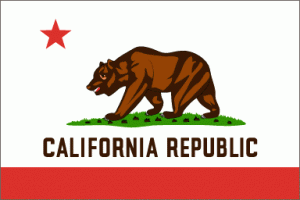Prop. 31 would have ended California’s republic
by CalWatchdog Staff | November 9, 2012 10:18 am
 [1]Nov. 9, 2012
[1]Nov. 9, 2012
By Wayne Lusvardi
How could all of the following so-called impartial ballot guides miss a key controversial component of Proposition 31 that would have ended the original republican form of local government in California?
* The California Legislative Analysts Office[2];
* The Official State Voter Guide[3], Arguments FOR and AGAINST[4];
* The League of Women Voters of California[5];
* Voter’s Edge California[6];
* The California Voter Foundation[7].
Prop. 31 was titled the “Government Performance and Accountability Act.” It promised good government reforms, such as:
* A two-year budget cycle;
* Granting veto power to the governor in case of a fiscal emergency;
* Three-day advance notice of all bills in the state legislature;
* Requiring performance budgeting in all state and local government agencies;
* Requiring all new funding bills in legislature to find new money or cut other programs.
Hardly anyone but this writer pointed out that all of the above reforms were already on the books in one form or another.
On top of that, Prop. 31 had a provision to allow the relaxation of existing laws and regulations under newly formed local government “Strategic Action Committees” if new procedures were “functionally equivalent” to existing laws. Prop. 31 promised to allow local governments to use gasoline and property taxes routed through the state with few purse strings. This must have seemed like a dream come true for those who have been seeking the deregulation of environmental laws, affordable housing quotas and labor laws.
Who in his right mind could have been against Prop. 31 with all of the above promises? Why did it go down at the ballot box by a margin of 1,864,603 votes if it would have resulted in all of the above reforms? Was it because Prop. 31 would have ended, for the most part, California’s republican form of local government? Noooo! That wasn’t the reason cited by most news sources!
Republicanism Upheld Only by Accident
The reason attributed to Prop. 31 losing by most sources was not that it would have replaced a republican form of government with unelected regional councils controlled by the Legislature. The only opposition George Skelton[8] and the Los Angeles Times had to Prop. 31 was that it was “long and complex.” TV station KQED in Northern California said it was just “too complicated.” [9]
But even those who found it too complicated never mentioned that Prop. 31 would have mostly ended California’s republican form of revenue sharing. In its place would have been a hybrid regional form of governmental revenue sharing. The new revenue sharing mechanism under Prop. 31 would have funneled gasoline and property taxes to the Strategic Action Committees, rather than cities, counties, and school districts. And some of Prop. 31’s provisions could have trumped the “home rule” of zoning, housing, etc.
This would have been one of the most radical changes in California history. But none of the official voter guides mentioned it. For the most part, neither did the mainstream media. And neither Prop. 31’s supporters nor opponents[10] made any mention of this. Nobody seemed to care if California’s republic effectively ended.
Except for this writer, the only other source to alert the public that Prop. 31 would end the republican form of government in California was Stanley Kurtz[11] of the New York City-based National Review[12] magazine. Kurtz’s opposition to Prop. 31 was based on his timely book, “Spreading the Wealth: How Obama is Robbing the Suburbs to Pay for the Cities.[13]”
Imagine all those liberal, leftist, green and even big government Republican Party-hating libertarian voters out there who might have voted for Prop. 31? Satirically: If only they had known it would have ended republicanism and replaced it with regionalism and socialized wealth redistribution, they might have voted for it?
‘Neutral’
So the next time you look at one of those so-called neutral state or third party voter guides, think again about whether you should trust their analysis or recommendations. One should be reminded of the definition of a neutral person from the New Devil’s Dictionary[14]:
“Neutral, n. A person whose prejudice is so terribly obscure, so incomprehensible, or so transparent that others see no purpose in silencing that person.”
California’s republic was in peril, but hardly anyone noticed it. As Machiavelli wrote, “The people, when deceived by a false notion of the good, often desires its own ruin.”
Which raises the deeper question of whether much of the media and citizenry entirely miss historical social change? The winners may write history; but the winners only in error write the news.
Proposition 31 was rightly defeated at the polls but for the wrong reasons. But who would have known or even cared?
- [Image]: http://www.calwatchdog.com/2011/07/07/budget-assumptions-dont-hold-up/california-flag/
- California Legislative Analysts Office: http://vig.cdn.sos.ca.gov/2012/general/pdf/31-title-summ-analysis.pdf
- Official State Voter Guide: http://vig.cdn.sos.ca.gov/2012/general/pdf/complete-vig-v2.pdf
- Arguments FOR and AGAINST: http://vig.cdn.sos.ca.gov/2012/general/pdf/31-arg-rebuttals.pdf
- League of Women Voters of California: http://smartvoter.org/2012/11/06/ca/state/prop/31/
- Voter’s Edge California: http://smartvoter.org/2012/11/06/ca/state/prop/31/
- California Voter Foundation: http://www.calvoter.org/voter/elections/2012/general/props/prop31.html
- George Skelton: http://latimesblogs.latimes.com/california-politics/2012/10/skelton-proposition-31-california-budget.html
- “too complicated.” : http://blogs.kqed.org/election2012/2012/10/12/analysis-prop-31-would-reform-governance-and-much-else/?utm_source=rss&utm_medium=rss&utm_campaign=analysis-prop-31-would-reform-governance-and-much-else
- supporters nor opponents: http://ballotpedia.org/wiki/index.php/California_Proposition_31,_Two-Year_State_Budget_Cycle_(2012)
- Stanley Kurtz: http://www.nationalreview.com/corner/316404/californias-prop-31-revolution-will-not-be-publicized-stanley-kurtz
- National Review: http://en.wikipedia.org/wiki/National_Review
- “Spreading the Wealth: How Obama is Robbing the Suburbs to Pay for the Cities.: http://www.amazon.com/s/ref=nb_sb_noss_1?url=search-alias%3Dstripbooks&field-keywords=stanley+kurtz
- New Devil’s Dictionary: http://revisedevilsdictionary.com/letter_n.htm
Source URL: https://calwatchdog.com/2012/11/09/prop-31-would-have-ended-californias-republic/